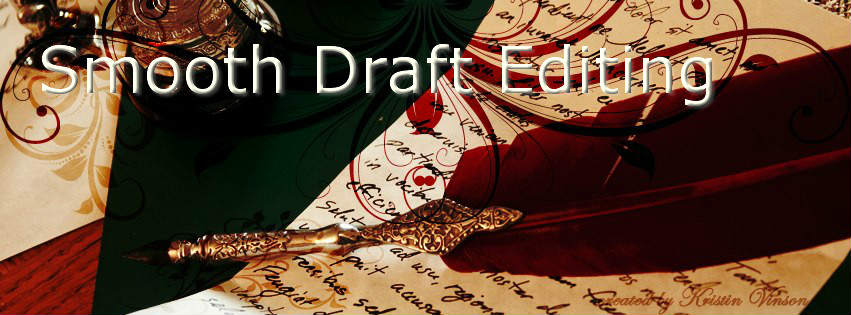Lessons Learned: Speech tags speak louder than words
That should probably be “more loudly,” (assuming speech tags could speak) but I’ll stick with the well-known phrase even though it’s got some grammatical issues, anthropomorphizing aside.
The Basics
 Speech tags. We’ve all seen them, even if we didn’t know what they were called:
Speech tags. We’ve all seen them, even if we didn’t know what they were called:
“Frankly, my dear, I don’t give a damn,” Rhett said.
The red is the speech tag. Its most important use is to let the reader know who’s speaking. If you have a scene with two characters, you don’t always need one, since the paragraph spacing, order of dialog exchange, and content usually are enough to clue everyone in.
So far, so good. But what about when speech tags get ugly?
A knock sounded at the door.
“Who’s there?” Rita asked.
“It’s Ralph,” Ralph said.
We really didn’t need the speech tag on Ralph’s line, and it borders on comical. Even on the other side of the door, Rita knows that’s Ralph speaking. Leave them off if they are redundant.
A Rose by Any Other Name
 Here’s where speech tags get fun. Or even uglier.
Here’s where speech tags get fun. Or even uglier.
If “said” is good, wouldn’t a more descriptive verb be even better? We’re always advocating show don’t tell, so if she screams, that’s showing right?
“Get out of here, you bastard!” Raquel screamed.
“I will not,” Pierre retorted.
“I’ll call for a palace guard,” she countered.
“Little good that will do you,” he warned.
“What will you do to me?” she inquired.
You get the idea. No one simply “said” anything here. Every speech tag was overblown and jumped right out at you. Did it help you understand the passage better? Probably not. Some of what the writer wanted you to know is implied by context. Other information can be conveyed more elegantly.
I edited a manuscript where the author didn’t use “said” even once. She had another word for every single speech tag. She proudly shared a file with me that had 1000 different ways to say “said.” She’s absolutely not alone in thinking this is a good thing. In fact, way back when, there was a book listing all of these words, supposedly to help writers be creative. It was called the “Said Book,” which is why these verbs are often called “said-bookisms.”
But it’s not good. One of my mottoes: “A Thesaurus is no substitute for imagination.”
Sticking with unobtrusive speech tags such as “said” or “replied” will put the focus on the dialog and accompanying description and action beats, which is where you want it to be. You don’t want the reader to notice a character bellowed, but not pay attention to what he bellowed. These speech tags will steal your dialog’s thunder.
Watch out for places where you rely on a fancy verb to take the place of actually telling. If Raquel is scared of Pierre, show that to us in body language and tone of voice. Is she cowering against the wall? Does her voice quaver? Does she shake her fist as she speaks the first line? Then show us and we’ll get the picture, quite literally.
Speech tags are another place where writers enjoy using adverbs. Like the aggressive verbs, adverbs hit us over the head with what’s happening, rather than finesse the description with body language.
“Get out of here, you bastard!” Raquel said loudly.
“I will not,” Pierre said confidently.
“I’ll call for a palace guard,” she said worriedly.
“Little good that will do you,” he replied menacingly.
Try your hand and reworking that little exchange without ostentatious verbs or adverbs and you’ll see it’s a bit harder, but more rewarding. Readers appreciate a word picture of a Raquel and Pierre’s exchange played out more subtly. It will be much more memorable.
“Get out of here, you bastard!” Raquel balled her hands into fists so tight her fingernails nearly drew blood.
“I will not.” Pierre’s voice dropped to a whisper that sent shivers down her spine.
“I’ll call for a palace guard,” she said as she slid down the wall, hoping he wouldn’t come any closer.
“Little good that will do you,” he said as he hovered over her, his hot breath ruffling her hair.
Cliched actions aside, this is much more interesting to read, and to write. How can I show that he’s menacing? I like the challenge of showing how she reacts rather than just telling the reader she’s scared of him and he’s a nasty brute. See how much you learned about these two from a simple exchange even with zero backstory? Are you interested in finding out how they got here? What if this was the beginning of a story, which set of dialog intrigues you most?
While it’s not a hard and fast rule, try to stick with invisible speech tags (said, asked, replied) about 80-90% of the time, and save the heavy hitters when they will make a statement. It’s always the exceptions to the rule that stand out. If every speech tag is memorable, in the end none of them will be.
I’ll write more pointers for dialog in a future posting. If you have a specific dialog question, feel free to ask in a comment.
What’s your opinion on speech tags?
